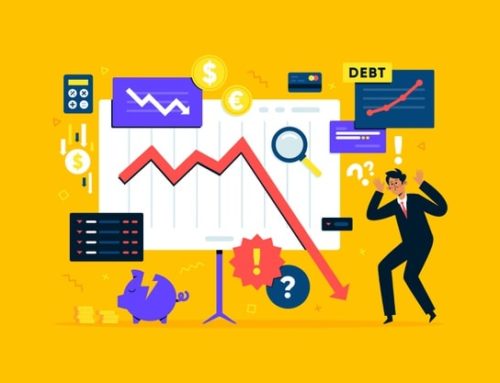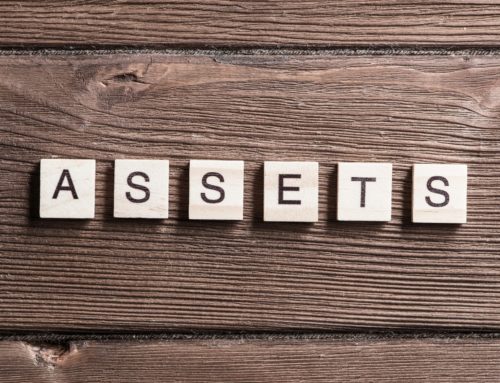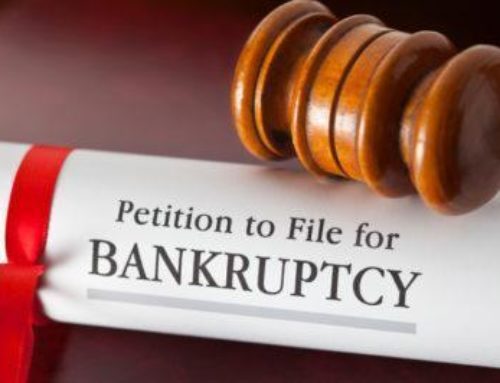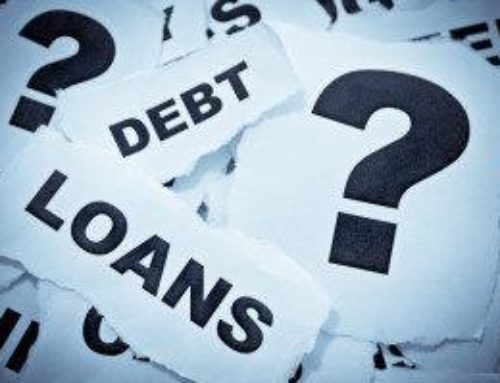Chapter 13 and Chapter 7 bankruptcy are the most common types of bankruptcies. People file either of these depending on their financial condition and debts. After you have filed for a Chapter 13 bankruptcy, you may be able to convert your case into one that will result in a discharge of debt.
But can you a file for Chapter 7 after Chapter 13? While the answer is not a clear yes or no, one can easily file for Chapter 7 bankruptcy after filing for Chapter 13 bankruptcy. A reliable bankruptcy attorney in Portland can further explain the different types of bankruptcy so you can make an informed decision.
This article will explain how it is done and give information about the pros and cons.
What is the difference between Chapter 7 and Chapter 13?
In a nutshell, they are quite distinct. Each has several pros and downsides, and for many people, Chapter 7 bankruptcy is the better option. For others, Chapter 13 bankruptcy is the better choice.
Even if you have your heart set on one of the choices, it is critical to explore both with your bankruptcy attorney if you are unaware of substantial advantages or downsides.
The significant distinction between Chapter 7 and Chapter 13 is that Chapter 7 is designed to pay off unsecured debt such as credit cards, personal loans, and medical bills.
However, Chapter 13 enables you to catch up on secured debts such as your home or car while still eliminating unsecured debt.
- Chapter 7 examines your assets at the time your case is filed, protects those that are “exempt” – in most cases, everything you own — and discharges the majority, if not all, of your debts.
- Chapter 13 has a repayment plan for any secured debt (home, car, etc.) that you are behind on while also eliminating the majority, if not all, of your unsecured debts.
The Pros and Cons of Filing a Chapter 7 and Chapter 13
Chapter 7 Is Less Expensive Than Chapter 13
Chapter 7 filing fees are often significantly less than Chapter 13 filing fees and costs.
The Expediency with which Chapter 7 is Discharged
A Chapter 7 case with no assets is often resolved within four to six months of filing the Chapter 7 petition. This means that you may remove a substantial portion of your unsecured debts in less than 180 days.
Preserve Property
While many people who file for bankruptcy under Chapter 7 retain all of their property, there is a possibility that you will lose property under Chapter 7.
Put an End to Debt Collection Suits
If a creditor sues you, filing for Chapter 7 bankruptcy will put an end to the litigation. If the debt is dischargeable, the litigation stays, and you are free of the debt. For judgment creditors, Chapter 7 eliminates judgments if the debts are dischargeable.
Prevents or Corrects Deficiencies
A shortfall is a balance due to a creditor following a foreclosure or repossession. In other words, you owe more money even though the item was lost. Chapter 7 bankruptcy eliminates deficiency judgments.
Additionally, Chapter 7 prevents inadequacies. If you relinquish collateral in Chapter 7, the creditor cannot attempt to collect more money from you if the property is not sold for the entire amount of the debt.
The Disadvantages of Chapter 7 Bankruptcy
Possibility of Property Loss
Chapter 7 bankruptcy is a liquidation bankruptcy. The Chapter 7 trustee may sell any property that is not bankruptcy exempt. The Chapter 7 trustee distributes the debtor’s property sale proceeds to the debtor’s unsecured creditors.
Negative Impact on Credit Score and Credit Report
A bankruptcy may lower your credit score, and a public bankruptcy record will appear on your credit report. For ten years, Chapter 7 remains on the credit report. You may wish to read Experian’s guide on the effects of Chapter 7 on your credit score.
Certain Debts Are Not Dischargeable
Certain debts, including the majority of taxes and student loans, are not dischargeable in bankruptcy. In bankruptcy, alimony, child support, restitution, certain judgments, and most government debt are not dischargeable. If you apply for bankruptcy under Chapter 7, you will continue to owe these bills after your bankruptcy case is completed.
It’s more challenging to avoid foreclosure and repossession.
Because Chapter 7 bankruptcy does not include a repayment plan, you must make up for any missed mortgage and vehicle loan payments fast to keep your home and car during the Chapter 7 process. Chapter 13 bankruptcy helps spread out those payments over three to five years to keep your home and car during the bankruptcy process.
Income Requirements
Chapter 7 bankruptcy includes strict income requirements to qualify for a bankruptcy discharge. If you gain more than the state’s median, you may be ineligible for Chapter 7 discharge.
However, if the majority of your debts are company debts, the Means Test may not apply.
Additionally, you may qualify for Chapter 7 if your disposable income (income available for debt repayment) is less than a particular amount.
The Advantages of Chapter 13 Bankruptcy
Preventing Foreclosure on Their Home
A Chapter 13 bankruptcy proceeding may be beneficial to you to avoid having your property auctioned in a foreclosure sale. You can use a Chapter 13 plan to make up for missed mortgage payments (mortgage arrearage) over several years.
Without Chapter 13, you would need to make all missed payments in one big sum, qualify for a loan modification, or restructure your house mortgage to avoid foreclosure. When you are in debt, those options may be unavailable.
You can protect your home if you file a Chapter 13 plan with the assistance of the bankruptcy courts. The Chapter 13 plan enables you to restructure your other debts to resume making regular mortgage payments.
The Advantage of Getting Rid of a Second Mortgage
In Chapter 13, you may be able to discharge the second mortgage. If the value of your home is less than the amount owed on your first mortgage, you can submit a motion to declare the second mortgage to be worthless.
If the court grants your motion, the second mortgage’s whole sum becomes an unsecured debt. When your Chapter 13 case is concluded, the second mortgage is discharged. To make this work, your home must be worth at least $1 more than the amount owed on the first mortgage.
Eliminating Tax Debts
Generally, income tax debts are not dischargeable (forgivable) in bankruptcy. You can, however, spread those payments out over three to five years to assist you in repaying old tax arrears.
Additionally, if a portion of your income tax debt is older and satisfies certain criteria, you may be entitled to settle your tax debt for less than you owe the government.
Assistance With Automobile Payments
Chapter 13 might also assist you in avoiding repossessions if you are overdue on your car payments. If you owe more on your car than it is worth and have owned it for 910 days or longer before declaring bankruptcy relief, you may be eligible to reduce your car payments through your Chapter 13 plan.
If not, you can extend the auto loan term by another 60 months, which may bring the payments down to an affordable level.
Assistance with Child Support Payments
Domestic support obligations (DSOs), alimony, and back taxes on child support are not dischargeable in bankruptcy. However, your Chapter 13 plan may include back child support and past-due alimony payments.
Rather than face jail time or other court consequences, you can use the bankruptcy process to catch up on past-due DSO payments. To stay in Chapter 13, you must make all future alimony and child support payments on time.
Eliminating Unsecured Debts
Unsecured debts in general, such as credit card debts, medical bills, unpaid utility bills, unpaid rent, and personal loans, can amount to tens of thousands of dollars.
Depending on your financial condition, you may be able to eliminate those debts through Chapter 13 bankruptcy by paying only a tiny portion of the amount under the bankruptcy repayment plan.
The Disadvantages of Chapter 13 Bankruptcy
Negative Impact on Credit Score and Credit Report
You may be curious about the impact of a Chapter 13 bankruptcy on your credit score and report. It varies depending on your starting credit score, but you could lose between 100 and 200 points.
Additionally, Chapter 13 (like Chapter 7) is part of your public record and is accessible through PACER. However, Chapter 13 bankruptcy remains on your record for seven years, compared to ten years for Chapter 7 bankruptcy.
Limited payment flexibility
Chapter 13 bankruptcy frequently has limited payment flexibility, which means that if your Chapter 13 obligations are excessive, you may have few options. You are not permitted to acquire debt or sell assets without the bankruptcy court’s approval during that period.
Additionally, if your income improves, your Chapter 13 payment will likely increase as well. You are expected to contribute all available funds to your Chapter 13 plan.
Duration of time
While you can quickly file for Chapter 13 bankruptcy, the plan will take time to complete before you are freed. While you can complete a Chapter 13 bankruptcy in 90 days, the average Chapter 13 bankruptcy case lasts three to five years.
There are some outliers, but many plans are rather lengthy. This is frequently why some individuals explore debt settlement in addition to filing for Chapter 13 bankruptcy.
How to File from Chapter 13 to Chapter 7
Unless you’ve already been discharged under Chapter 7 in the prior eight years, you can transfer your Chapter 13 to Chapter 7.
You will have to file a Notice of Conversion and pay a fee. This warning is not on an official bankruptcy form, although your court may have one.
Remember that you must still qualify for Chapter 7 bankruptcy to be discharged.
Reasons to file a Chapter 7 after a Chapter 13
1. A Chapter 7 case will end your obligation to pay a Chapter 13 plan.
After filing a Chapter 13, a Chapter 7 case can stop the harassment of creditors while letting you keep your house. Only about 10 percent of bankruptcy cases are filed twice, and the vast majority of those cases file Chapter 7 rather than Chapter 13.
2. A Chapter 13 case can stop foreclosure and often stop wage garnishment.
But it doesn’t usually stop lawsuits, and it won’t stop a creditor from suing you personally. A Chapter 7 case can stop a creditor from filing a lawsuit against you.
3. A Chapter 13 case will wipe out much, but not all, of your unsecured debt.
A Chapter 7 case will wipe out all your unsecured debt.
Consult a Portland Bankruptcy Lawyer
Shifting a Chapter 13 case to a Chapter 7 bankruptcy can be advantageous. It will eliminate qualified debt, including outstanding balances, health care costs, and personal loans if you qualify.
However, you risk losing essential items. It’s advisable to find a competent bankruptcy lawyer to explain in detail the options suitable for your financial situation. Call us today for a free consultation!











